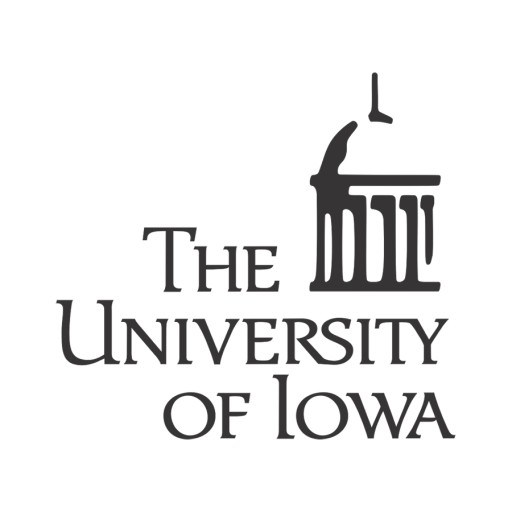Photos of university / #uiowa
The Juris Doctor (JD) program at the University of Iowa College of Law is a prestigious and comprehensive legal education designed to prepare students for successful careers in the legal profession. The program combines rigorous academic coursework with practical skills training, ensuring graduates are well-equipped to navigate the complexities of the modern legal landscape. Students gain a strong foundation in core areas such as constitutional law, contract law, criminal law, property, and torts, while also having the opportunity to specialize through elective courses that cover diverse fields including environmental law, intellectual property, health law, and international law.
The curriculum emphasizes critical thinking, analytical reasoning, and effective communication, fostering a deep understanding of legal principles and ethical responsibilities. Interactive teaching methods, including moot courts, law clinics, and simulations, provide hands-on experience and prepare students for real-world legal practice. The University of Iowa College of Law also offers joint degree programs, such as the JD/MBA and JD/MPH, allowing students to tailor their education to their particular career interests.
Faculty at the college are distinguished scholars and practicing attorneys, committed to mentorship and academic excellence. Students benefit from a close-knit community vibe with small class sizes that encourage engagement and individual attention. The college maintains strong ties with the judiciary, government agencies, and private sector employers, facilitating internships, externships, and employment opportunities both within Iowa and nationally.
The university’s location in Iowa’s vibrant educational and cultural hub provides a conducive environment for academic and professional growth. The program also emphasizes professional responsibility, social justice, and public service, inspiring students to use their legal education to effect positive change in their communities. Graduates of the University of Iowa College of Law are well-prepared to pass the bar exam, practice law effectively, and uphold the highest standards of integrity and professionalism. Whether students aim to work in litigation, corporate law, government, or academia, the program offers the necessary tools and support to achieve their aspirations.
To earn the LLM degree, each student must successfully complete a course of a minimum of 24 hours of academic credit, as approved by his or her faculty adviser. Please note the College of Law reviews and develops its curriculum, including both mandatory and elective courses, on an ongoing basis. Certain courses are specifically designed for foreign-trained law students. It is possible that we will develop additional courses for our foreign-trained students, including versions of existing courses, that may be required to graduate with an LLM degree. The College of Law has two tracks for LLM students:
- Practical Training and Path to Bar Admission (Legal Practice Track): This track is open to foreign-trained lawyers who do not have a JD from a law school that is a member of the Association of American Law Schools or approved by the American Bar Association and are interested in qualifying to take a bar examination. It includes the LLM Orientation course, providing an introduction to US law for foreign-trained lawyers; Legal Analysis, Writing and Research; and core courses including Contracts, Property, Torts, and Professional Responsibility. In addition to the basics, students choose from our large variety of regularly offered JD courses, most of which are open to LLM candidates. Students work with Iowa Law advisors to tailor each of their programs to meet the requirements of state bars that accept LLM graduates to sit for the bar exam (refer to the section on Foreign-Educated Applicants to the New York Bar for details).
- In-depth Research Path (Research Track): This track is open to both foreign-trained lawyers and students holding a JD from a law school that is a member of the Association of American Law Schools or approved by the American Bar Association who seek to enter into an academic career or one involving primarily policy formulation or research, or who may wish to apply later to do doctoral work in the US. For students interested in research the Iowa LLM provides a setting that encourages close collaboration with renowned experts in such fields as international and comparative law, anti-competition law, intellectual property, law and economics, law and society, law of war and peace and international criminal law, human rights, and international arbitration. LLM students without a JD from a law school that is a member of the Association of American Law Schools or approved by the American Bar Association must take the LLM Orientation course to the US Legal System. All LLM students in this track take the LLM Seminar, a research and writing course during which they will write a research paper qualifying for at least one credit on a topic approved by the instructor. For each student, the LLM seminar paper is the culmination of research conducted in our world-class law library, which includes an extensive international and comparative law collection.
Requirements
- Have earned a JD degree from a law school in the United States that is a member of the Association of American Law Schools or approved by the American Bar Association.
- Have earned a foreign law degree from a school that is accredited within its country similar to accreditation by the American Bar Association. If the home country bar exam does not require a specific degree to allow one to practice law, applicants should either be experienced members of the bar, have completed the first university degree in law, or have completed a multi-year master's program in law with a course of study of at least three years.
- You must first submit the online application to the Graduate College and pay the $60 application fee by credit card ($100 for international applicants).
- A statement of purpose
- Official Transcripts: Official copies of academic records of coursework completed in colleges, universities, technical institutes, and professional institutions are required, in English, regardless of the duration of study or of whether you obtained a degree. The College of Law participates in LSAC's Credential Assembly Service. You are responsible for submitting to LSAC an official transcript from each institution you have attended.
- Three letters of recommendation
- Most students accepted to the program have TOEFL scores above 92 (Internet)/237 (computer)/580 (written), or an overall IELTS score of at least 7.0 with no subsections below 6.5.
- Once recommended for admission, international students must send a Financial Statement.
The University of Iowa offers various financing options for students enrolled in its Law degree programs to facilitate access to legal education and support students throughout their studies. Funding opportunities include federal and state financial aid, scholarships, grants, and loan programs designed to assist both domestic and international students. Students are encouraged to complete the Free Application for Federal Student Aid (FAFSA) to determine eligibility for federal loans, work-study programs, and grants. The university also provides a range of private scholarships based on merit, need, or specific criteria such as academic achievement, leadership, or diversity. Many of these scholarships are renewable and require maintaining certain academic standards.
In addition to scholarships, students can benefit from federal Stafford loans and Grad PLUS loans, which provide low-interest borrowing options for graduate students pursuing a law degree. The university's financial aid office offers counseling to help applicants understand loan terms, repayment options, and responsible borrowing practices. The university also partners with external organizations and bar associations that may offer fellowships or loan repayment programs for specific groups or practice areas.
Part-time work opportunities are available on and off-campus, allowing students to earn income while gaining relevant experience. The university’s law school routinely provides information sessions and workshops on financial planning, debt management, and maximization of available funding sources to ensure students can make informed financial decisions.
Furthermore, the university emphasizes transparency in its cost of attendance, which includes tuition, fees, living expenses, books, and personal expenses. International students may have access to different funding sources, including university-specific scholarships or external grants aimed at attracting global talent. Overall, the University of Iowa strives to make legal education accessible through comprehensive financing options, supporting students from diverse backgrounds in achieving their academic and professional goals.
The University of Iowa offers a comprehensive and rigorous Juris Doctor (JD) program designed to prepare students for a successful legal career. The program emphasizes a strong foundation in core legal principles, critical thinking, and practical skills essential for effective law practice. Students have the opportunity to engage in a diverse curriculum that covers various areas of law, including constitutional law, criminal law, contract law, property law, and civil procedure, among others. The university's modern facilities and extensive legal resources, such as the law library, provide an excellent environment for learning and research.
The program integrates experiential learning through clinics, internships, moot court competitions, and simulation courses, allowing students to gain real-world experience and develop practical skills. The faculty comprises distinguished scholars and experienced practitioners dedicated to mentoring students and fostering a supportive academic community. The law school also emphasizes diversity and inclusion, ensuring a rich, collaborative learning environment that prepares students for legal practice in a globalized world.
Graduates of the program are well-equipped to pursue careers in private practice, government service, public interest advocacy, or academia. The university's strong alumni network and partnerships with legal institutions offer valuable career development opportunities. The JD program at the University of Iowa typically takes three years to complete and is accredited by the American Bar Association, ensuring that graduates meet the standards for legal education required to sit for the bar exam in most states.








